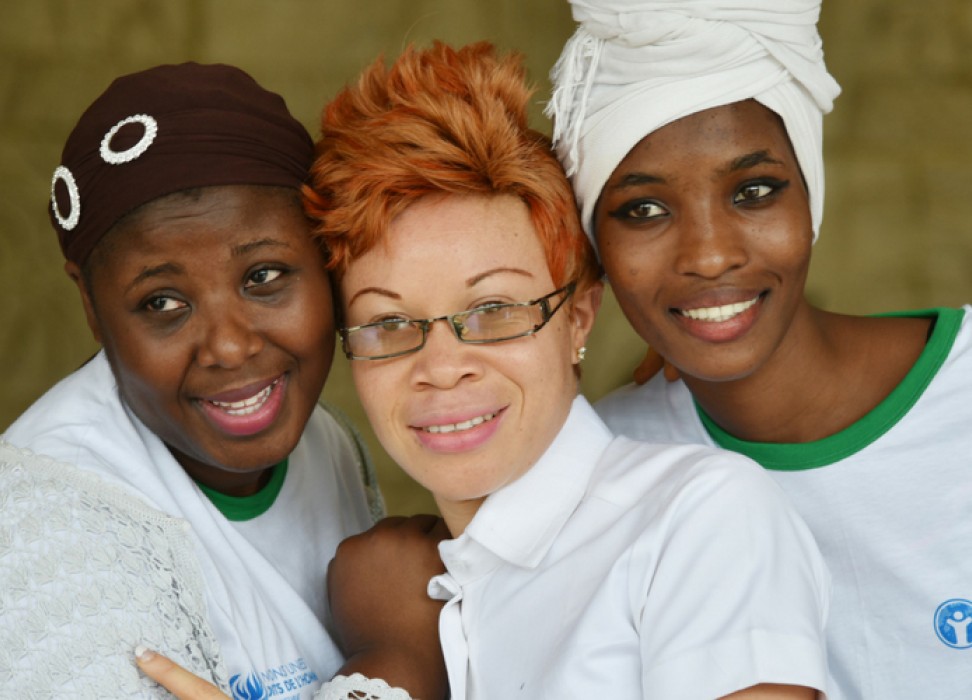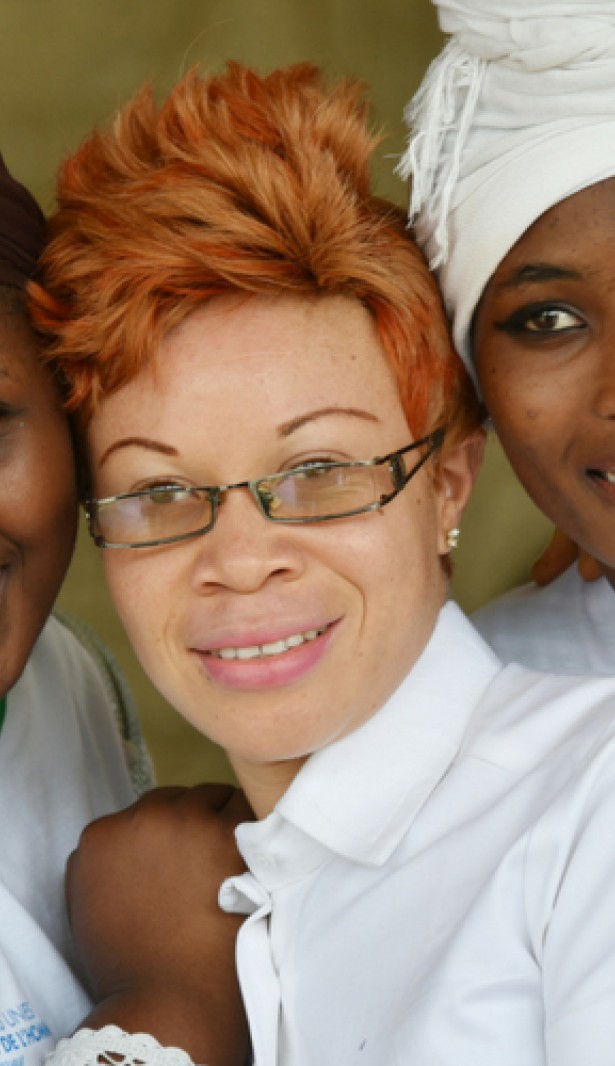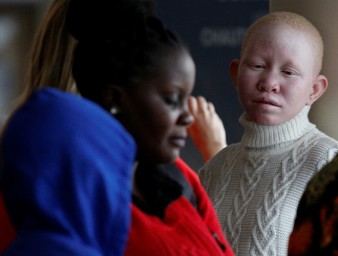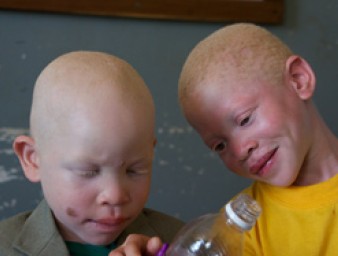UN expert on albinism: “We are gaining ground”
13 June 2018

Regional steps for rights protection and individual achievements by people with albinism themselves are celebrated on this year’s International Albinism Awareness Day.
The past year has been abundant with achievements for people with albinism.
In a move that the UN independent expert on albinism, Ikponwosa Ero, called a “game changer,” the African Commission on Human and Peoples’ Rights and the Pan African Parliament endorsed a Regional Action plan to end attacks on people with albinism in Africa.
Many of the violent attacks people with albinism are subjected to occur in African countries where people with albinism stand out because of the uncommon colour of their skin, eyes and hair.
The physical appearance of persons with albinism is often the object of flawed beliefs and myths influenced by superstition that foster their marginalization and social exclusion. This leads to various forms of stigma and discrimination that can result in violence, as demonstrated by the more than 600 attacks against people with albinism that have been reported in 27 countries in the past 10 years.
For people with albinism, the lack of melanin in the eyes can lead to severe visual impairment. As a result, from an early age, they can experience challenges in school if reasonable accommodation is not put in place to give them an equal opportunity to realize their right to education.
Goldalyn Kakuya, a 14 year-old girl with albinism, made national headlines when she topped Kenya’s primary school exams in December 2017, and shattered myths and stereotypes that people with albinism are unable to learn.
Others, like the women survivors of attacks and mutilation, are preparing to reach the summit of Mount Kilimanjaro, to prove the resilience of people with albinism despite the adversity they endure on a daily basis.
“While we celebrate, we take a moment to reflect on those who have been attacked and lost their lives or were mutilated because they have albinism. I am heartened by the commitment to putting these atrocities to an end,” said Ikponwosa Ero in her message for International albinism Awareness Day- 13 June.
“Indeed the battle continues, but we are gaining ground.”
Albinism is a rare, non-contagious, genetically inherited condition which occurs worldwide regardless of ethnicity or gender. It most commonly results in the lack of melanin pigment in the hair, skin and eyes, causing vulnerability to sun exposure. Both parents must carry the gene for it to be passed on to their children, even if they do not themselves have manifestations of the condition.
The prevalence of albinism varies across the world: 1 in 5,000 to 1 in 15,000 people in Sub-Saharan Africa, and 1 in 20,000 people in Europe and North America have the condition according to the NGO Under the Same Sun.




